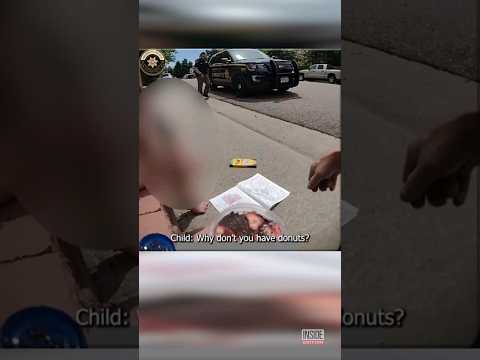
- Sheriff Scott Jenkins of Culpeper County was convicted of conspiracy, honest services fraud, and bribery after selling deputy badges and law enforcement privileges for cash and campaign contributions.
- His conviction highlighted deep corruption within local law enforcement, as badges granted buyers significant legal authority like carrying firearms and immunity from traffic stops.
- Despite a ten-year sentence, Jenkins avoided prison after a presidential pardon from Donald Trump restored his civil rights and erased his conviction.
- The case amplifies controversy over the power of presidential pardons, raising questions about justice, accountability, and the vulnerability of democracy when public trust is compromised.
Red and blue sirens once illuminated the streets of Culpeper County, Virginia, under Sheriff Scott Jenkins. That same authority, voters once trusted with their safety, now carries a spotlight for all the wrong reasons. Jenkins – convicted on a boldly orchestrated web of fraud and bribery – will never see the inside of a prison cell. A single stroke of presidential power changed his fate.
At the heart of the controversy lies Jenkins’ brazen scheme. According to federal prosecutors, he sold the symbols of trust – deputy badges – to businessmen who paid handsomely, sidestepping rigorous training and scrutiny in exchange for $75,000 in cash and campaign checks. Some buyers covertly worked for the FBI, hoping to reveal just how deep corruption could seep into America’s law enforcement ranks. The privileges these men gained weren’t mere trinkets: auxiliary sheriff’s badges can carry the full authority of trained officers, granting power to carry concealed firearms and gain immunity from routine traffic stops. For Jenkins, re-elected twice since first taking office, public trust was a currency spent all too readily.
A federal jury found the long-serving sheriff guilty on twelve counts: conspiracy, honest services fraud, and bribery, all tied to programs receiving federal funds. Judge Robert Ballou handed down a decade-long sentence, echoing the Department of Justice’s stern message that no badge stands above the law.
Then came an extraordinary intervention. Days before Jenkins was to report to prison, Donald Trump swept in with a presidential pardon, stripping away the weight of a criminal conviction and erasing any risk of jail. With this move, Jenkins joined a growing roster of allies and supporters who have received similar reprieves, especially in the turbulent aftermath of the 2021 Capitol riots.
The American president’s power to pardon – inscribed in Article II of the U.S. Constitution – has always provoked debate. Designed as a mercy for extraordinary circumstances, it is immune to outside challenge and, in this case, freed an official convicted of systematically betraying his office. For Jenkins, this is more than a get-out-of-jail card: all his civil rights are restored, opening the door for a political return, should he seek it.
For residents of Culpeper County and observers nationwide, the incident stirs urgent questions. Can justice truly be served if power can sweep aside a jury’s verdict? Does the public trust survive when authority is auctioned off or when convicts are redeemed by connections? Presidential pardons — at their best — are displays of compassion. At their worst, they feel like the ultimate loophole.
Today’s key lesson lingers: democracy depends on the integrity of both its leaders and its laws. If trust is traded or pardoned away too often, both fade into shadow.
Scandal, Shield, and Second Chances: The Real Fallout of Sheriff Jenkins’ Presidential Pardon
Sheriff Scott Jenkins’ Story: What You Need to Know
The shocking saga of Culpeper County’s former sheriff, Scott Jenkins, isn’t just another headline—it’s a rare glimpse at the intersection of law, politics, and presidential power in America. While the original article covered the headline details, several crucial facets warrant deeper exploration. Here, we break down the story with fresh context, expert opinions, law enforcement ethics, and what this means for you and America’s justice system.
1. The Facts Behind the Jenkins Scandal
Jenkins was more than just a small-town sheriff: he was re-elected twice, enjoying broad local support. His conviction stems from selling deputy appointments—these roles often confer “law enforcement privileges,” which, depending on state law, can include concealed carry rights, flashing lights, and a badge’s credibility (Source: Department of Justice).
Auxiliary deputies, particularly in rural areas, are typically volunteers or part-time staff, but the law still expects rigorous background checks and training. Jenkins’ scheme violated both ethical and legal norms by granting criminal justice powers to unqualified individuals.
2. How Presidential Pardons Work: Power Without Oversight
Article II of the U.S. Constitution grants the president sweeping clemency powers. No one—not the courts, not Congress—can override or undo a presidential pardon. While originally intended as an act of mercy (such as exonerating wrongful convictions or showing compassion for the terminally ill), the pardon process has sometimes enabled political allies to escape legal consequences.
Notably, University of Chicago Law Professor Aziz Huq describes the pardon as “one of the least constrained powers the president has” (Source: NPR).
3. Real-World Consequences: Why It Matters Locally and Nationally
How-To Identify Sheriff Misconduct:
– Watch for sudden appointments or promotions without clear rationale.
– Ask for public records: In most states, you can request hiring or appointment logs.
– Support strong, independent oversight committees at the county level.
Life Hack: Want police accountability? Attend county meetings; ask sheriffs or police chiefs about their policies for auxiliary appointments.
Use Case: How Auxiliary Badges Are Misused
Auxiliary badges are not just collector’s items—they can provide access to sensitive areas, including restricted crime scenes, government facilities, or influence on-duty officers. In the wrong hands, they become tools for evading the law rather than upholding it.
4. Market Trends & Industry Context
– Law enforcement trust is at historic lows, with Gallup reporting only 48% of Americans expressing confidence in the police (2023).
– The Marshall Project highlights that scandals like Jenkins’ erode recruitment—a shrinking number of people want to enter law enforcement careers due to fear of systemic corruption.
5. Reviews & Comparisons: Jenkins vs. Other Presidential Pardons
– Compared to controversial pardons (e.g., Sheriff Joe Arpaio, Roger Stone), Jenkins’ case is unique for the overt sale of police powers rather than just political speech or campaign violations.
– According to The Washington Post, Trump issued almost 144 pardons during his presidency, with a significant portion going to associates or political allies.
Controversies & Limitations
– Critics argue that such pardons undermine justice and erode faith in the legal system.
– Supporters claim the pardon power is a check against judicial overreach or politicized prosecutions.
– Legal scholars warn there is little recourse: Congress could consider constitutional amendments for limited oversight, but none currently exist.
Features, Specs & Pricing (For Civic Resources)
Want more transparency? Many states operate portals for checking local law enforcement records or political contributions (try your state’s .gov website for access).
Security & Sustainability
– Security flaw: Granting police badges outside rigorous hiring practices opens avenues for criminal exploitation and organized crime infiltration.
– Sustainability issue: Long-term public trust deteriorates when officials avoid accountability, making it harder to sustain effective law enforcement reforms.
Insights & Predictions
– Anticipate stricter state-level laws on auxiliary police appointments in the wake of scandals.
– Some experts predict renewed calls for limiting the presidential pardon: a bipartisan reform gaining slow support in Congress.
– Watch for similar scrutiny in future local elections—candidates’ attitudes toward pardons and corruption may become campaign focal points.
Pros & Cons Overview
Pros (of the Pardon Power):
– Allows for compassion in extraordinary circumstances.
– Provides a legal escape when the court system fails.
Cons (in this scenario):
– Bypasses jury verdict and judicial process.
– Risk of enabling corrupt officials to return to power.
– Damages public trust in law enforcement and justice.
6. Most Pressing Questions Readers Have—Answered
Q: Can Jenkins run for office again?
A: Yes—a presidential pardon restores civil rights lost through conviction, including the right to vote, serve on a jury, and hold public office.
Q: Does the pardon suggest he did nothing wrong?
A: No—a pardon erases criminal penalty, not the underlying conduct or federal finding of guilt.
Q: How can regular citizens help hold sheriffs accountable?
A: Get involved in local government, demand transparency, and support watchdog organizations tracking police corruption (see White House for federal transparency initiatives).
Q: Are there calls for reforming the pardon process?
A: Yes. The Brennan Center for Justice and multiple legal scholars have proposed congressional oversight or enhanced transparency requirements, but the law remains unchanged.
Quick Actionable Recommendations for Readers
1. Attend local sheriff or county board meetings—ask tough questions about appointment and training procedures.
2. Use your right to access local government records; transparency begins with citizen vigilance.
3. Support independent candidates or officials calling for enhanced accountability and oversight in local law enforcement.
4. Watch upcoming elections for candidates’ views on police reform and ethical standards.
5. Stay informed about legislative efforts to change how pardon powers are wielded, both locally and nationally.
For up-to-date information on justice reform and oversight, visit the White House homepage or respected legal think tanks.
Summary
While Sheriff Jenkins may walk free, the deeper story is about preserving public trust, demanding transparency, and ensuring justice is administered evenly—no matter the badge or influence held. Stay vigilant, stay informed, and remember: true civic power lies in an informed and active community.
This post Secret Deals, Presidential Power: The Shocking Twist That Let a Sheriff Escape Justice appeared first on Macho Levante.

A cybersecurity specialist with a passion for blockchain technology, Irene L. Rodriguez focuses on the intersection of privacy, security, and decentralized networks. Her writing empowers readers to navigate the crypto world safely, covering everything from wallet security to protocol vulnerabilities. Irene also consults for several blockchain security firms.






